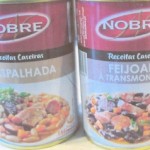The FDA has finalized the Foreign Supplier Verification Programs for food importers, in accordance with the Food Safety Modernization Act of 2011. This rule requires that food importers perform "certain risk-based activities to verify that food imported into the United States has been produce din a manner that meets applicable U.S. safety standards." FDA head Michael Taylor said in a statement, "under the new rules, importers will have the obligation to verify they are meeting U.S. standards. This is a fundamental paradigm shift from the FDA detecting and responding to problems with imported foods to industry being responsible for preventing them." Imported food makes up almost 20% of the food Americans eat. We import 52% of fresh fruits and 22% of the fresh vegetables in our diet. … [Read more...]
Salmonella in Cucumbers is Not Antibiotic Resistant
In their latest report on the deadly Salmonella Poona outbreak linked to Andrew & Williamson cucumbers imported from Baja, Mexico, the Centers for Disease Control and Prevention (CDC) stated that tests on the outbreak strain shows that 100% of the bacteria are not resistant to antibiotics. That is good news. Still, the hospitalization rate for this outbreak is 31%, which is 11% higher than the usual rate for Salmonella infections. There may be two reasons for this discrepancy. First, a large proportion of patients in this outbreak (52%) are children. Because children's immune systems are still developing, they have a harder time fighting off these types of infections. Second, there may have been so many bacteria on the cucumbers that they overwhelmed patients' immune systems and … [Read more...]
Banned Cilantro Triggers Cyclospora Lawsuit
A dispute over banned cilantro contaminated with Cyclospora has landed in court. Produce wholesaler Farmers Friend has filed a lawsuit alleging supplier Don Hugo Produce knowingly misrepresented the origin of cilantro to skirt an FDA ban issued after cilantro from the Puebla area of Mexico was linked to a Cyclospora outbreak two years in a row. Cyclospora is a parasite that lives in subtropical climates. Infections are usually associated with travel to developing countries, but for the last couple of summers it has travelled here on cilantro grown Puebla, Mexico. The hallmark of cyclosporiasis is profuse, often explosive, diarrhea that can last up to two months. Other cyclosporiasis symptoms, which can also last more than 60 days, include abdominal cramps, bloating, gas, nausea, … [Read more...]
California Fines Companies Selling Pesticide-Laden Food
The California Department of Pesticide Regulation (DPR) has fined six companies that are charged with selling fruits and vegetables with illegal pesticide residues to predominantly ethnic minority customers. The fines range from $10,000 to more than $20,000. Brian Leahy, DPR director, said in a statement, "These companies were importing and selling produce to stores that primarily cater to California's ethnic communities. They were given ample opportunities to change their methods but chose not to do so." DPR inspects farmers markets, chain stores, distribution centers, and other facilities as part of its Residue Monitoring Program. Fruits and vegetables are randomly selected an tested to ensure that the pesticide levels on the produce falls within legal limits. You can see photos of … [Read more...]
Cyclospora Outbreak in Texas Increases Again
The Texas Department of State Health Services is reporting that the Cyclospora outbreak in that state has increased again. Now 205 people in that state are sickened with cyclosporiasis that is associated with cilantro imported from the Puebla region of Mexico. The FDA has issued an import alert on cilantro imported from that region in Mexico. That product will be detained if it reaches the border. Annually recurring outbreaks in 2012, 2013, 2014, and this year have prompted an investigation. FDA investigators found feces and toilet paper in some cilantro fields, and contamination caused by irrigation of fields with water contaminated with sewage. Other issues may include cleaning produce with contaminated water, and lack of adequate cleaning of equipment that is used to process the … [Read more...]
Pork and Beef Stews Recalled for Lack of Import Inspection
Boa Vida Imports of Massachusetts is recalling about 385 pounds of pork and beef products imported from Portugal because that country is not eligible to export meat products to this country. They were not presented at the U.S. point of entry for inspection. Without benefit of full inspection, a possibility of adverse health consequences exists. The recalled products include 1 pound cans of "NOBRE Receitas Caseiras CHISPALHADA” with a use or sell by date of 10/21/2016 on the can. Also recalled is 1 pound cans of “NOBRE Receitas Caseiras DOBRADA COM FEIJAO BRANCA” with a use or sell by date of 09/23/2016 on the can. Finally, 1 pound cans of “NOBRE Receitas Caseiras FEIJOADA A TRANSMOTANA” with a use or sell by date of 07/10/2016 on the can are recalled. These pork meat and beef tripe stew … [Read more...]
FDA Not Keeping Up with FSMA Foreign Inspection Law
A report released last week by the Government Accountability Office says that the FDA has to do more about inspecting food facilities in countries that export that food to the United States. The GAO studied the FDA's foreign offices in 2010 and found that they have a too heavy workload. A follow-up report found that the FDA is not inspecting enough facilities as mandated by the Food Safety Modernization Act of 2011. The FDA is supposed to inspect 600 foreign food facilities in the first year after FSMA was signed into law and, for each of the next five years, inspect at least twice the number of firms inspected the previous year. According to those calculations, the government should have inspected 4,800 facilities last year, but only conducted 1,323 inspections. The report states, … [Read more...]
Imported Pork Products Recalled for Lack of Inspection
ESS Food, in Denmark, is recalling 50,904 pounds of pork belly produced in Poland that was not presented at the port of entry for inspection. Without the benefit of full inspection, a possibility of adverse health consequences exists. No illnesses have been reported to date. The recalled product is 40 pound boxes containing 4 - 5 pieces of "Pini Polana Pork Belly Boneless." It was produced on various dates from March 3, 2014 to April 11, 2014. The products have the establishment number "10023802" inside the Polish mark of inspection. They were shipped to a distributor in Texas and a processing facility in Iowa. The problem was discovered during routine surveillance of storage facilities. An FSIS inspector observed that the products did not have USDA import inspection marks. … [Read more...]
Canada Confirms New Case of Mad Cow
The Canadian Food Inspection Agency (CFIA) has confirmed its first case of mad cow disease, or bovine spongiform encephalopathy (BSE) in a beef cow since 2011 and the fourteenth case since 2005. The government says that no part of the animal's carcass entered the human or animal food systems. These cases, in addition to the consumers' right to know, are one reason consumer's advocates want to see country of origin labels (COOL) on imported meats. The beef cow was from Alberta, Canada. BSE is a progressive, fatal disease with no cure. It is caused by proteins called prions that are not destroyed by cooking. The prions are also very resistant to UV radiation, disinfectants, and ionizing radiation, but can be destroyed by a combination of those treatments and time. The disease has a … [Read more...]
Omnibus Funding Bill Bans Chinese Chicken from School Lunches
The DeLauro-Pingree Amendment in the Omnibus spending bill that was just passed by Congress bans purchase of chicken raised in the United States and processed in China for school lunches. The bill was passed by the House last Thursday and the Senate on Saturday. Representative Rosa DeLauro said in a statement, "banning Chinese chicken from school meals is a common-sense step to protect our kids. China's food safety record is atrocious, yet last year USDA deemed poultry processed in China to be as safe as poultry processed here. Children are among the most susceptible to foodborne illness. We cannot take unnecessary risks with our health." Representative Pingree said, "Chinese chicken does not belong in school lunches. China has such serious food safety problems that even Chinese … [Read more...]














